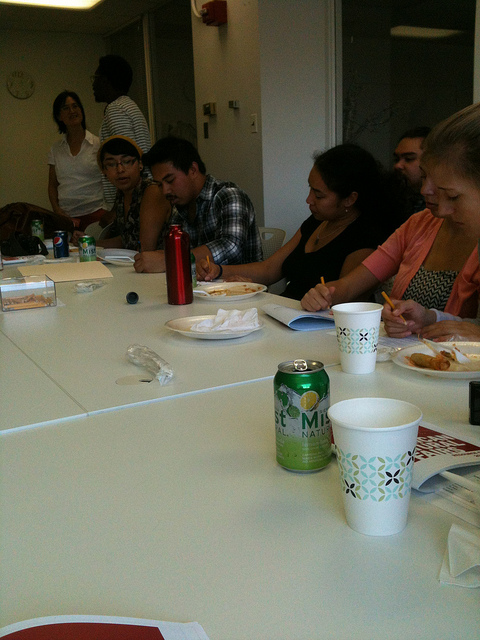
The Difference Between Graduate School and Undergrad
[flickr id=”8028004371″ thumbnail=”medium_640″ overlay=”true” size=”original” group=”” align=”none”]
So what is the difference? To sum it up in a couple words, a lot! I remember wondering this last year. At first, just the very thought of graduate school seemed very scary and daunting to me. However, in the first couple months, I have found this experience to be more exciting than scary. In undergrad, there is a wide spectrum of learning. I had my classes for my major, my general education credits, and classes for my minors. However in graduate school, my education is more specialized. Long gone are the general education requirements of undergrad. From this point on, everything that I learn relates directly to my profession, and this is what I love! I get to learn about what I have a passion for doing.
While it is amazing to be studying in such a specialized area, it is also intense. The work becomes more serious, because the program is preparing me to go into the world and work with real people. The decisions that I make in a facilitative setting will affect the lives of others. Because of this, understanding and critically thinking about all of the information that I am absorbing at the graduate level is extremely important.
In undergraduate school, there is sometimes a larger emphasis on the memorization of material. In grad school, however, I am taking all of the material that I am memorizing and applying it to real life professional situations. From a DMT perspective, application is not just limited to the classroom. Besides having an internship in my second year of study to apply everything that I learn, I also have the opportunity to actually experience exercises used in dance/movement therapy myself. Being a first year DMT student, this is the process that I am largely experiencing right now. Through experiential learning, I begin to understand how certain exercises we use in the field affect myself and, in turn, how this may affect future clients of mine (for more info on experiential learning check out one of my recent blog posts).
What’s more, in graduate school you have the opportunity to learn not only from the faculty but also from your fellow classmates. Classroom discussion is essential to the curriculum at Columbia. Though many of our classes devote some time to discussion, we also continue the discussion outside of the class by means of Moodle, an internet-based discussion board. Here, each of us can share our insight into the classroom material and pose questions as we work through the readings and progress through the program.
[flickr id=”8027999948″ thumbnail=”medium_640″ overlay=”true” size=”original” group=”” align=”none”]
So what does all of this mean in terms of work load? In the Dance/Movement Therapy & Counseling MA program, there is a lot of reading. After all, in order to succeed in any future profession, you have to be well read within your field. Specifically, when speaking about dance/movement therapy, I find that there is a lot of reading because the field has such a wide range of situations in which it is practiced. DMT is also a growing field, so it is important to stay up to date on new and innovative research. I have found that maintaining a here-and-now understanding of what is going on in DMT is very helpful to understanding the field and what directions I can go within it. Not to mention, it can be inspirational when coming up with a topic for the masters thesis. This leads me to another difference when comparing undergrad and graduate school—the masters thesis. I will share more insight into this aspect of graduate school once I start the Research Methods class next semester.
For now, I think this highlights some of the differences that I have found so far in my personal experience transitioning from an undergrad to graduate student. In just these first couple of months, it has been an amazing journey, and I am very excited to continue learning in this specialized atmosphere.
